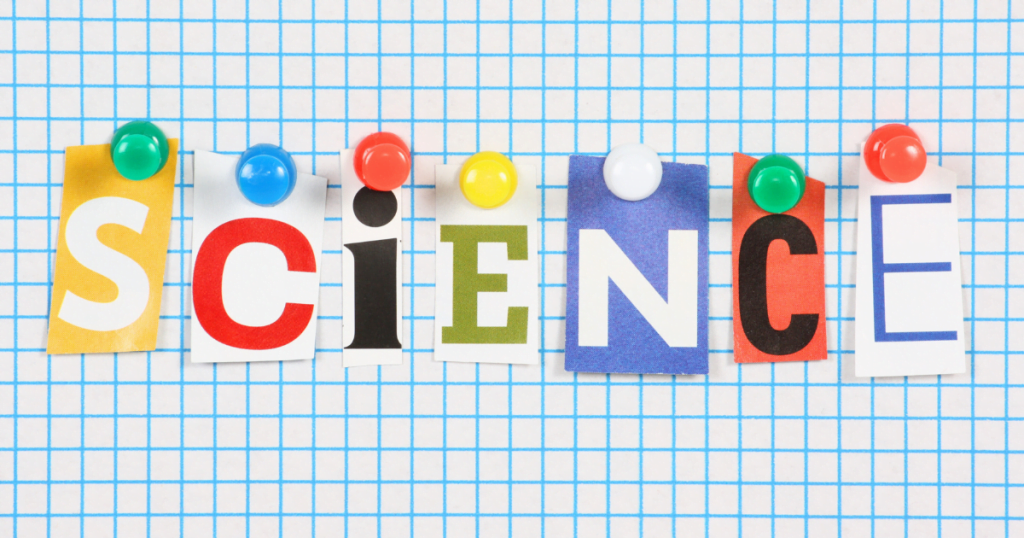Affirmation: A Scientific Tool for Positivity or Just a Trend?
Have you ever wondered if affirmations truly work or if they’re just another modern-day trend? Many of us encounter affirmations daily, but their effectiveness often sparks curiosity. In this article, we’ll explore the science behind affirmations, uncover their impact on our minds, and share insights on how to use them effectively.
What Does Affirmation Mean?
If you’ve been following me on Instagram, you’ve likely come across the daily affirmations I share and are familiar with my perspective on this subject. Many people ask me, “Does affirmation work?” or “Is affirmation scientific?” To answer these questions, let’s first explore what an affirmation truly means.
According to the Psychology Dictionary, an affirmation is a short phrase repeated regularly to embed positive and uplifting ideas into one’s mind. In essence, affirmations are powerful tools designed to foster an inner sense of well-being and promote a more optimistic outlook on life.

Is affirmation scientific?
The question “Is affirmation scientific?” often arises, and the answer is a resounding yes. Research has shown that self-affirmations can help create new neural pathways in the brain (Paulhus & Coue, 1993). This aligns with studies on neuroplasticity, which reveal that even in adulthood, our brains retain the ability to adapt and form new patterns of thinking (Demarin & Morovic, 2014).
One foundational psychological theory supporting affirmations comes from Claude M. Steele, a social psychologist and professor emeritus at Stanford University. Steele’s research highlights that affirmations help individuals maintain their sense of “self-efficacy”—a stable image of themselves as competent, morally sound, and capable of making meaningful choices. Affirmations act as a straightforward yet effective tool to uphold this inner motivation (Sciencedirect).

the scientific benefits of affirmations
- We know that when we believe something will happen, it is actually more likely to happen. Even false beliefs can influence our own and others’ experiences (Madon, Jussim, & Eccles, 1997).
- Affirmations can help reduce physiological and psychological stress responses. David Creswell and colleagues had participants complete a self-affirmation procedure before engaging in the stressful experience of public speaking and mental arithmetic in front of a hostile audience. Those who completed the self-affirmation procedure showed no change in levels of the stress hormone cortisol from baseline. As chronic stress has been linked to physical illness, this finding also suggests that self-affirmation may have positive effects on health outcomes. (Creswell, JD, Welch, W., Taylor, SE, Sherman, DK, Gruenewald, T., & Mann, T. (2005).
- Affirmation of personal values buffers neuroendocrine and psychological stress responses. Psychological Science, 16, 846-851.)
- The success of self-affirmations is associated with the ability to broaden a person’s overall perspective and reduce the impact of negative emotions (Sherman, 2013; Cohen & Sherman, 2014).
- Researchers have suggested that self-affirmations remind individuals of psychosocial resources that transcend a particular threat and enable them to focus on positive sources of self-worth that transcend the threat. This in turn is thought to protect psychological well-being against threat ( Koole et al., 1999 ; Cohen et al., 2009 ; Cook et al., 2012 ; Sherman et al., 2013 ).
- Affirmations can increase focus on positive sources of value for individuals. Self-affirmation interventions often rely on participants reflecting on personal core values and rewarding experiences. This pathway will engage neural mechanisms associated with reward and positive evaluation (VMPFC; Bartraved et al., 2013)
- By examining participants’ neural activity during a self-affirmation task, we tested the extent to which exposure to self-affirmation produces increases in brain systems associated with positive valuing self-related processing and emotion regulation (Falk et al. (2015)).
- Imagining future events that are emotionally positive and rewarding has been found to lead to neural changes in brain systems (D’Argembeau et al., 2008, 2010 Benoit et al., 2011, 2014)
- We found support for the hypothesis that future-oriented affirmations activate brain regions involved in self-related processing (Lieberman MD (2010).)
- Affirmations can reduce stress, increase well-being, improve academic performance, and make people more open to behavior change Cohen and Sherman (2014)
- Affirmations have been positively linked to academic achievement by mitigating GPA decline in students who felt ostracized at university (Layous et al., 2017)

Don’t do these things when making affirmations
It is important that the affirmation is written in a language that is appropriate for the unconscious mind, so I recommend that you do not make every affirmation you come across, but take into account the posts of experts you trust. As a hypnotist who is a member of the National Guild of Hypnotists, the world’s oldest and best-known hypnotist association, I share affirmations in the right language. On the other hand, another sensitive point about this issue is that the affirmation you will make should be consistent with your own values and beliefs, otherwise you may create internal conflict.

The Brain Confuses Reality and Imagination: Research Dated March 23, 2023
A recent study from University College London (UCL) reveals that the more vividly a person imagines something, the more likely they are to believe it is real. This research found that the brain processes the strength and vividness of both real and imagined stimuli in a similar way, effectively blurring the line between reality and imagination.
Professor Stephen Fleming, from UCL’s Psychology and Language Sciences department and the Wellcome Center for Human Neuroimaging, explains:
“Normally, imagination is relatively weak, so we don’t confuse it with reality. However, if imagination becomes strong or vivid enough, it can be mistaken for reality.”
This discovery underscores the brain’s ability to merge what we imagine with what we experience, highlighting the power of vivid mental imagery Neurosciencenews
Looking Ahead with the Power of Affirmations
In conclusion, affirmations are more than just positive statements; they are scientifically supported tools that can reshape neural pathways, enhance well-being, and help us overcome stress. However, their success depends on being written in a language that aligns with the unconscious mind, being crafted in harmony with personal values, and being used consistently. Now that you understand the science behind affirmations and know that the more powerfully you imagine an affirmation, the more likely your brain is to believe it, if you’re ready to try, you can benefit from the affirmations I share every Monday for free in the affirmations category on my website.
References
- Paulhus, DL and COUÉ, E. (1993). Bypassing the will: The automatization of affirmations. JMS , 4 , 1.
Demarin, V. and Moroic, S. (2014). Neuroplasticity. Periodicum biologorum , 116 (2), 209-211. - Madon, S., Jussim, L. and Eccles, J. (1997). In search of the powerful self-fulfilling prophecy. Journal of personality and social psychology , 72 (4), 791.
- Creswell, JD, Welch, W., Taylor, SE, Sherman, DK, Gruenewald, T., & Mann, T. (2005). Affirmation of personal values buffers neuroendocrine and psychological stress responses. Psychological Science, 16, 846-851.
- Sherman DK (2013). Self-affirmation: understanding the implications. Social and Personality Psychology Compass , 7 ( 11 ), 834-45.
- Bartra O., McGuire J.T., Kable J.W. (2013). The valuation system: a coordinate-based meta-analysis of {BOLD} fMRI experiments examining neural correlates of subjective value. NeuroImage, 76, 412-27.
- D’Argembeau A., Xue G., Lu Z.-L., Van der Linden M., Bechara A. (2008). Neural correlates of envisioning emotional events in the near and distant future. NeuroImage , 40 ( 1 ), 398-407.
- Cohen G.L., Sherman D.K. (2014). The psychology of change: self-affirmation and social psychological intervention. Annual Review of Psychology, 65, 333-71.
- Koole S.L., Smeets K., Van Knippenberg A., Dijksterhuis A. (1999). The cessation of rumination through self-affirmation. Journal of Personality and Social Psychology, 77(1), 111.
- Cohen G.L., Garcia J., Purdie-Vaughns V., Apfel N., Brzustoski P. (2009). Recursive processes in self-affirmation: intervening to close the minority achievement gap. Science, 324(5925), 400–3.
- Cook J.E., Purdie-Vaughns V., Garcia J., Cohen G.L. (2012). Chronic threat and contingent belonging: protective benefits of values affirmation on identity development. Journal of Personality and Social Psychology, 102(3), 479.
- Sherman D.K., Hartson K.A., Binning K.R., et al. (2013). Deflecting the trajectory and changing the narrative: how self-affirmation affects academic performance and motivation under identity threat. Journal of Personality and Social Psychology, 104(4), 591.
- Falk EB, O’Donnell MB, Cascio CN et al (2015). Self-affirmation alters the brain’s response to health messages and subsequent behavior change. Proceedings of the National Academy of Sciences , 112 ( 7 ), 1977-82.
- Lieberman MD (2010). Social cognitive neuroscience. In: Fiske ST, Gilbert DT, Lindzey G., editors. Handbook of Social Psychology , 5th edition, pp. 143-93, New York, NY: McGraw Hill.
- Cohen G.L., Sherman D.K. (2014). The psychology of change: self-affirmation and social psychological intervention.
- Annual Review of Psychology, 65, 333-71.
- http://Bartra O., McGuire J.T., Kable J.W. (2013). The valuation system: a coordinate-based meta-analysis of {BOLD} fMRI experiments examining neural correlates of subjective value. NeuroImage, 76, 412-27.












